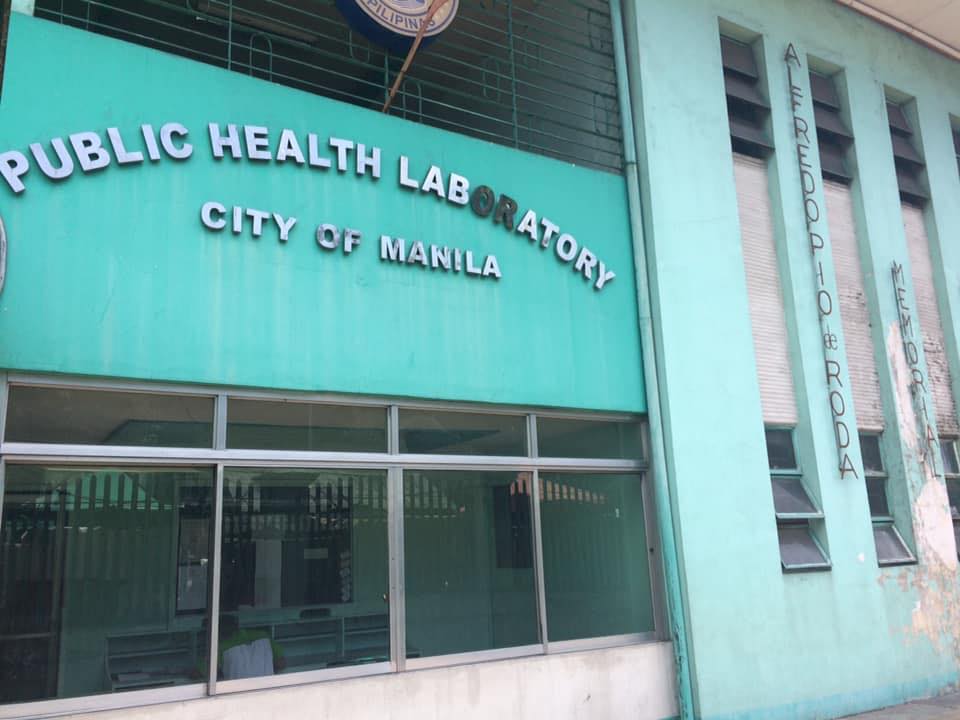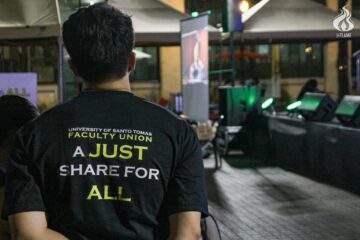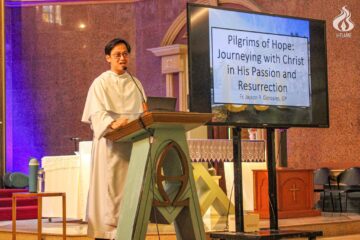
SOME UST employees, including two labor union presidents and faculty members, have criticized the Manila city government’s ordinance requiring university staff to secure a health permit every year, saying the policy is “questionable” and financially burdensome.
The issue stemmed from the Office of the Vice Rector for Finance’s (OVRF) memorandum in April directing all UST teaching and non-teaching staff to secure their health certificate from the Manila Health Department on or before May 31. The deadline was later moved to June 30 through another memorandum.
The requirement is based on Manila Ordinance 8793 issued in 2021 which states that any person or entity that operate any business enterprise within the city for public patronage shall secure a sanitary permit online before actual operations.
UST Faculty Union (USTFU) president Asst. Prof. Emerito Gonzales questioned the policy, saying such a provision was only necessary during the pandemic.
“That’s income—additional income of the city hall. It’s easy but at the burden of workers,” Gonzales told The Flame when asked what he thought was the reason behind the implementation of the policy.
Under the city ordinance, employees must provide a valid ID, a stool sample, a filled-out drug test form, a urine sample and biometrics. The total cost of securing a health permit, which has to be renewed annually, is P625.
The USTFU chief also raised concerns over an alternative given to practicing professionals under government regulating bodies that allows them to submit their tax receipt instead of getting a health permit.
“What does the tax have to do with health? What is the logic behind that? Nothing. What if you are the PRC (Professional Regulation Commission) license holder [and] the carrier of the disease? They won’t be able to monitor the disease carrier since he was exempted (from securing a health permit),” Gonzales said.
Ugnayan ng Nagkakaisang Manggagawa-UST Hospital president Donell Siazon pointed out that the cost of the permit is burdensome to some workers.
“That [P625] is heavy. What is P625 for a newly-hired worker or support staff or faculty member of the University? What, half a sack of rice? That should have gone to their family?” Siazon said.
Counterproductive
Some faculty members who requested anonymity shared the same views, saying tax payment as an alternative is counterproductive to ensuring the workers’ health.
“If the intention of this (health permit) is to ensure the health of workers in Manila, why does the alternative have nothing to do with health?” a faculty member said.
“Imagine the other workers that are required [to submit] yearly, can they pay without being hassled? Not all [employees] have high salaries.”
An Artlets instructor assailed the requirement to conduct medical procedures in government-owned establishments instead of the University’s medical facilities or other service providers.
“We submit health requirements to UST every year. Why can’t a simple certification from the University, which has its own hospital and is considered a leader in the medical field and in the sciences, be enough assurance that the teaching staff is healthy and well?” the instructor said.
A member of the academic staff called the ordinance “illogical and unjust.”
“I do not understand why Manila won’t accept my APE (annual physical exam) results, forces me to undergo a health exam in (its) substandard medical facilities and why I have to pay around P600 for this–whereas my APE was free, courtesy of my health insurance,” the teacher said.
Some teaching personnel are also averse to the idea of having to submit stool samples every year, a requirement usually imposed on job applicants.
No permit, no work?
A faculty member raised concern about the implications of not securing the health permit on one’s employment status.
“A permit indicated permission or non-permission to work. So will they hinder people (from working)?” the teacher said.
The academic employee urged employees unions to convince UST that employment need not be dependent on the requirement set by the local government.
“If anyone can push back, it is UST,” the teaching personnel said.
Organisasyon ng Nagkakaisang Empleyado-UST (ONE-UST), a three-way coalition of the University’s labor unions, including USTFU, sent a letter to Manila Mayor Honey Lacuna on June 21 to request a satellite office within UST for the collection and testing of specimens and fee payment and to extend the deadline to July 31. They cited the low number of Thomasian employees who have complied with the requirement. Only about 850 of the approximately 2,500 employees of UST have followed the ordinance at the time the letter was written.
“Some factors we see for this low turn-out are the distance of the designated testing facility and the discomfort our members experienced while collecting urine and stool samples in the below average conditions of the public toilets,” ONE-UST said in the letter.
“The hesitance of our members to inter-mingle with big crowds who may be sick or carry a virus; and the fact that many of our teachers come from the nearby provinces this vacation time,” it added.
The mayor’s office granted the request for deadline extension from June 30 to July 31, ONE-UST said in a letter addressed to its members dated June 23.
READ: Manila mayor extends health permit deadline
Samahang Manggagawa-UST Dan Paul Patricio said employees’ unions would seek a dialogue with the University administration to discuss their concerns over the health permit. F – Mei Lin Weng



